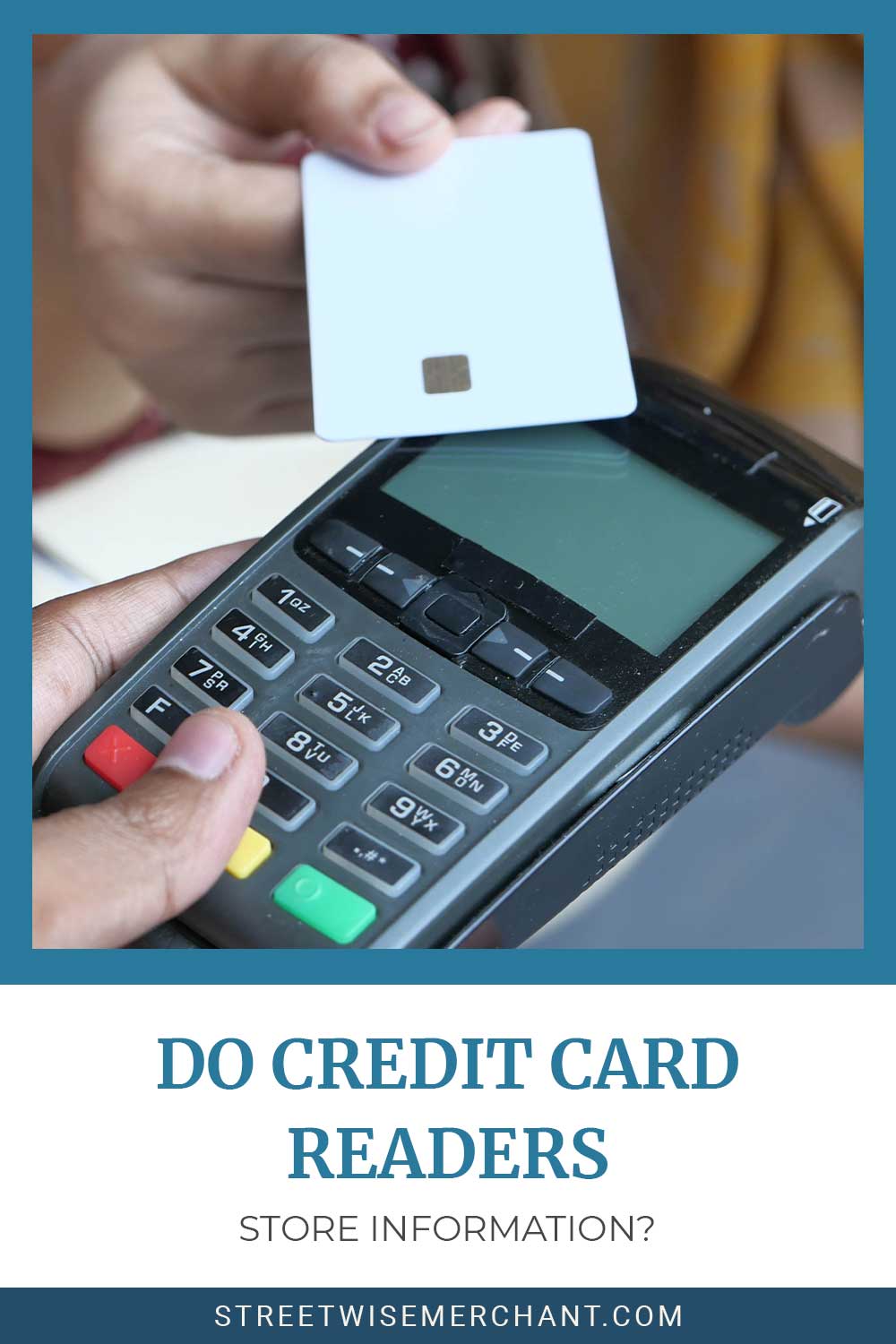With so many people dealing with identity theft and fraud, it is not surprising many people look at those credit card readers at the register with a bit of a side-eye. If you are anything like us, you probably have wondered at least once if they store your information.
It’s a valid concern, and that is why we wanted to take a deep dive into this topic to answer both our curiosities and yours as well! We looked into everything from whether they show your name to whether you should be worried because they are hooked up to the internet!
Do Card Readers Show Your Name?
Do the credit card readers display your name? It’s a common concern around folks who are trying to protect their personal information, and understandably so.
After all, we don’t want our names floating around out there in the ether, just waiting to be snatched up by some cyber-criminal.
The truth is it really depends. In most cases, the answer is no. When you type your card or payment term, the reader typically only displays the last four digits of your credit card number, the expiration date, and sometimes the card type.
However, it’s worth noting that some newer payment systems, such as those with chip technology, may ask you to answer your name before completing the transaction.
Is a Card Reader a Storage Device?
Finishing up the transaction, you may look down at that little card reader and wonder if it’s storing all your information. For example, can it hold your personation like your credit card number or name? It’s definitely something to think about.
The first thing first is, what is a credit card reader exactly? Well, it’s advice that raises information stored on the magnetic strip worship of your card. The reader is the community middleman between you and the payment processor.
But is it a storage device? The answer is maybe some credit card readers can store information, such as transaction data, for a brief period.
This information is typically encrypted and securely stored until it can be transmitted to the payment processor for processing.
So while credit card readers do have some storage capabilities, they’re not typically used to store large amounts of data over a long time. Instead, their primary function is quickly and securely transmitting transaction data to the payment processor.
Are Credit Card Readers Safe?
It is no secret that credit card fraud is a real concern these days. With all the reports of data breaches and identity theft, it’s natural to wonder whether those little credit card readers we use every day are actually safe.
In general, credit card readers are designed to be secure. They use encryption technology to protect your credit card information, meaning that any data transmitted from the reader to the payment processor is scrambled and can’t be read by anyone who intercepts it.
That being said, no system is foolproof. While credit card readers are generally safe, there have been instances of readers being compromised.
Can Card Readers Be Hacked?
As we said above is rare, but credit card readers have been known to be compromised by hackers. While these devices are mostly secure, these individuals know how to exploit the vulnerabilities of the programs and technology.
They do this by skimming or installing malware to steal credit card numbers and information.
So yes, they can be hacked, but some steps can be done to add a little extra security, like using your card only with reputable merchants and keeping a close eye on your credit card statement.
Are Card Readers Connected to the Internet?
Connection to the internet seems to most people to open up a world of potential when it comes to identity and credit card theft. But so, are these readers connected? The short answer is that it depends on the type of credit card reader the business uses.
Some credit card readers are designed to work offline, meaning they don’t need the internet to process transactions. However, more modern types are definitely connected to the internet. They send the transaction details via wi-fi or cellular data.
This helps speed up the transactions and makes processing more convenient for both the merchant and you. However, this means that you need to pay close attention to the type of reader the merchant is using and take the appropriate precautions.
Final Thoughts on Do Credit Card Readers Store Information
So there you have it, credit card readers do not store your information, but they pose a concern regarding credit card fraud. Though that threat is minor, it’s still important to be aware of it so you can stay vigilant when it comes to your personal information.
